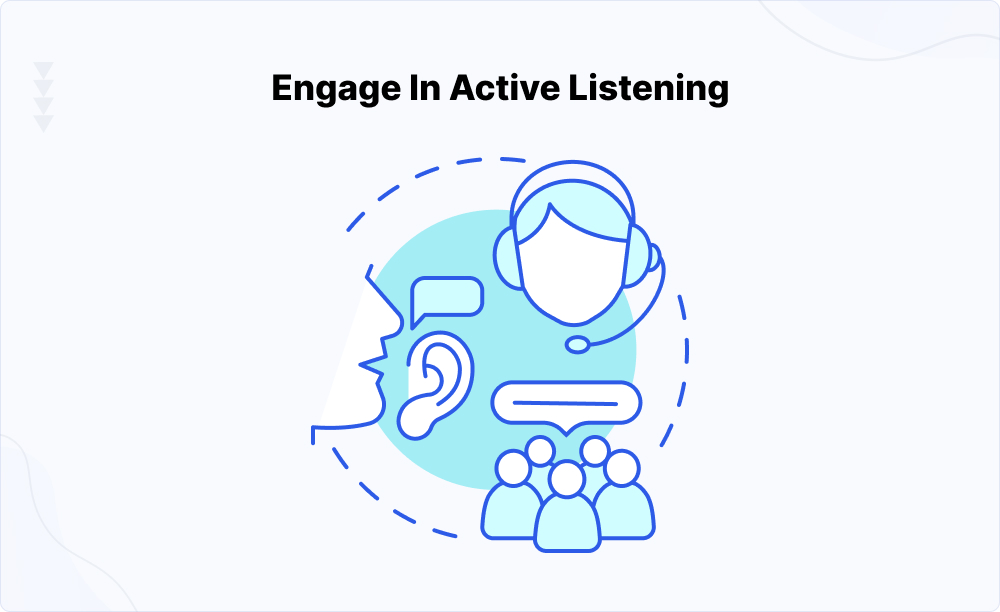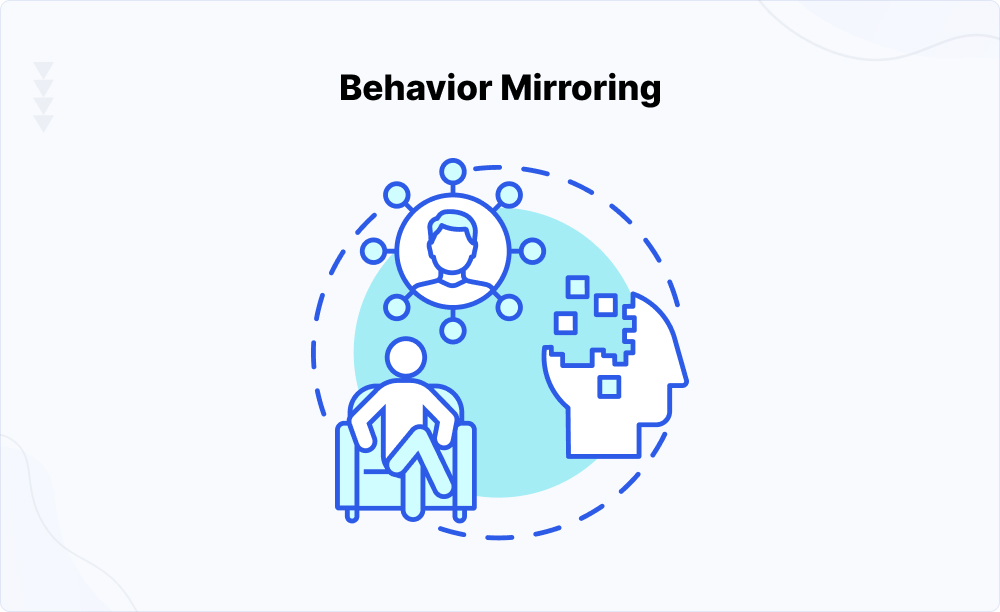Businesses are run by people and verbal communication is a vital skill to connect with them. Effective business communication is a key element that forms the foundation of any company’s success. From internal meetings to customer calls, every interaction determines the growth of an organization.
This means that as a contact center agent responsible for interacting with customers regularly, you must garner excellent interpersonal skills.
If you too wish to do so, the first step is to understand the importance of verbal communication and which skills can help you perfect it. Let’s understand that in detail.
What is Verbal Communication?
Verbal communication is the process of conveying information using language. It includes words—spoken, written, or signed. Verbal communication in the workplace involves face-to-face interactions and conversations via voice and video calls, while written communication involves conversing through text (both online and offline).
Effective business communication helps you initiate conversations, engage in discussions, build relationships, and do much more with your clients.
When you speak with confidence and poise, you are more likely to create a rapport and command respect from the customer.
Robert M. Krauss in “The Psychology of Verbal Communication” explains, “A species’ survival depends critically upon its ability to communicate effectively. The quality of its social life is determined in large measure by how and what it can communicate.”
Similarly, effective verbal communication is critical for the survival and success of a business as well.
Role of Verbal Communication in Business Growth

Verbal communication plays a vital role in any business’s growth. It helps you achieve your goals, understand your customers, and perform basic operations better.
Moreover, with effective business communication, you can create healthy relationships with your team members, provide constructive feedback and avoid unnecessary conflicts.
Having comprehensive business communication skills allows you to enhance the following avenues thoroughly:
-
Customer Interactions
-
Team Building
-
Conflict Management
-
Work Culture
-
Productivity
For now, we’re going to place our attention on customer agent interactions. This is because quality agent-customer conversations determine the future of any business.
If you want to read more about the role of effective verbal communication in the success of a business, check out this blog- Why is effective communication important?
Call Center Skills Every Agent Needs For Business Communication
Effective business communication skills are now more critical than ever. They focus on optimally using verbal and non-verbal cues such as body language, choice of words, posture, facial expressions, gestures, tone of voice, sentence framing, etc.
As a call center agent, verbal cues matter the most to you, as you communicate mostly digitally, and your customers can only hear your voice.
We spent some time analyzing our agent-customer interactions to nail down vital communication skills required for agents. After some intense research, we shortlisted 10 skills required for agents, especially contact center agents, to have quality customer interactions.
Active Listening

Listening is the most important skill of any conversation. When you listen to someone, it reflects your interest in their ideas and helps you understand their needs better. Additionally, others are more likely to reciprocate and hear what you share when you pay attention to their part in a conversation.
To take this up a level higher, we will talk about active listening. Active listening is paying absolute attention to the speaker’s verbal and non‑verbal cues. It begins with reducing all the unwanted noises and distractions by positioning yourself in a quiet place. Avoid attending to other people and engagements during an ongoing conversation to fully tune into the speaker’s message.
For instance, a call center agent who actively listens to a prospect on a sales call can identify hesitation points. They can then mold the conversation into their favor and increase their chances of a successful sale.
P.S- Acefone’s Call Notes allow you to take notes of vital client information while you’re listening to them explain their concerns to you.
Patience

“The key to everything is patience. You get the chicken by hatching the egg, not by smashing it.” says, Arnold H. Glasow, renowned businessman, author and humorist. Patience allows you to take time and reflect upon the other person’s message as well as your questions.
It helps you structure your thoughts in a precise manner and present it for the client’s better understanding. Also, it helps you resist the urge to fill the silences. Ideally, you must avoid silence as it can make a conversation static and awkward, however, pausing in between allows you to set the pace of the conversation in your favor.
If you don’t think patiently, you lose the impact of your message. Similarly, it’s equally important to allow the client to talk without interrupting their thoughts. It shows mutual respect and enhanced professionalism.
Technical Understanding

Having sound technical understanding of your company’s products/ services plays a pivotal role for agents, serving as a cornerstone for effective customer interaction. It equips agents with the knowledge needed to communicate complex product or service details in a clear and comprehensible manner. It enhances the overall quality of customer engagement.
During sales calls, technical expertise becomes vital for agents as it arms them with in-depth product knowledge. They can highlight unique features, address specific customer demands, and convincingly present value propositions. Such agents are better positioned to present the benefits of the product, facilitating a smoother sales process.
For customer support agents, technical expertise shines through in problem-solving and customer satisfaction. Agents can swiftly diagnose issues, provide relevant solutions, and guide clients through troubleshooting steps. This proficiency reduces query resolution time and enhances the overall customer experience, fostering trust and loyalty.
Empathy

Empathy is pivotal for sales and customer service interactions, as it shapes the way agents connect with customers. It involves understanding and sharing the customers’ feelings. When agents use empathy, they demonstrate understanding of a customer’s needs and concerns, building trust and rapport.
Agents can start by actively listening and acknowledging the customer’s emotions to leverage empathy and achieve a better outcome. By doing so they establish a supportive environment where customers feel heard and valued, allowing agents to uncover underlying issues or desires.
Agents can also use empathy to guide the conversation toward solutions tailored to the customer’s emotions and needs. By aligning their responses with the customer’s feelings, they can offer personalized assistance, making the interaction more meaningful.
Mirroring

Mirroring involves subtly reflecting the customer’s behavior, tone, or body language. It helps agents build rapport by establishing a connection based on similarity, making customers feel understood and comfortable.
Agents can employ mirroring to create a sense of familiarity by subtly matching a customer’s speech pattern or pace. It helps establish a connection that feels natural and relatable for them. This technique can foster a more comfortable conversation and build trust between the agent and customer.
Also, mirroring can aid in enhancing empathy during interaction. When agents mirror a customer’s emotions or expressions, it shows their understanding of the customer’s feelings, creating a more empathetic atmosphere. It allows agents to interact with sensitivity.
Tools For Effective Business Communication
The skills mentioned above are essential for you to have a high-quality conversation with your customers. However, having only the skills is not enough. You must also have the right technological tools and business illustration strategies to create a seamless communication flow. Here are a few such tools to help you get started:
Cloud Communication Platforms
Cloud communication platforms like Acefone provide a flexible, internet-based infrastructure for VoIP-based calling, video conferencing, text messaging, and email collaboration.
Instead of relying on traditional phone lines and on-premises systems, these platforms enable communication through the cloud, ensuring you can connect with your customers from anywhere in the world.
Advanced functionalities like automated dialing, multi-level IVR, click-to-call, and detailed data analytics can help you streamline communication.
Project Management Applications
Project management applications are designed to help you organize, plan, and execute multiple tasks efficiently. These tools centralize all project-related information on a single platform, ensuring everyone in your team is on the same page.
Through features like real-time updates, timeline management, file sharing, and progress monitoring, you can stay on top of projects. Additionally, milestone tracking makes it easier to provide accurate reports, maintaining trust and clarity throughout the project lifecycle.
CRM Solutions
Customer Relationship Management solutions organize and manage customer interactions, tracking sales, service requests, and communication history. They provide a centralized hub where you can store vital customer data, monitor sales pipelines, and automate marketing and support efforts.
File Sharing & Storage Tools
As a call center agent, you are bound to have critical documents like contracts, invoices, support claims, and multiple SOPs. Hence, you need an efficient way to store and share them securely.
Tools like Google Drive and Microsoft OneDrive provide you with a seamless and secure mechanism to store, access, and share documents. You get cloud-based storage, allowing your team to access files from any device with an internet connection.
The Takeaway
Tools and features can only take you so far. You must also learn communication strategies that help your agents drive customer satisfaction and attain sustained growth. Acquaint yourself with the top 5 communication strategies and ensure your call center skills to keep your customer happy.
Effective verbal communication skills like active listening, patience, technical understanding, empathy, and mirroring, elevate customer-agent interactions. They help agents foster trust and personalized assistance among customers.
Implementing a cloud phone system with detailed insights further enhances communication, driving revenue through improved conversions and upselling opportunities. Focus on practicing effective verbal communication via cloud-based phone systems for better customer experience and customer retention, leading to business growth.














